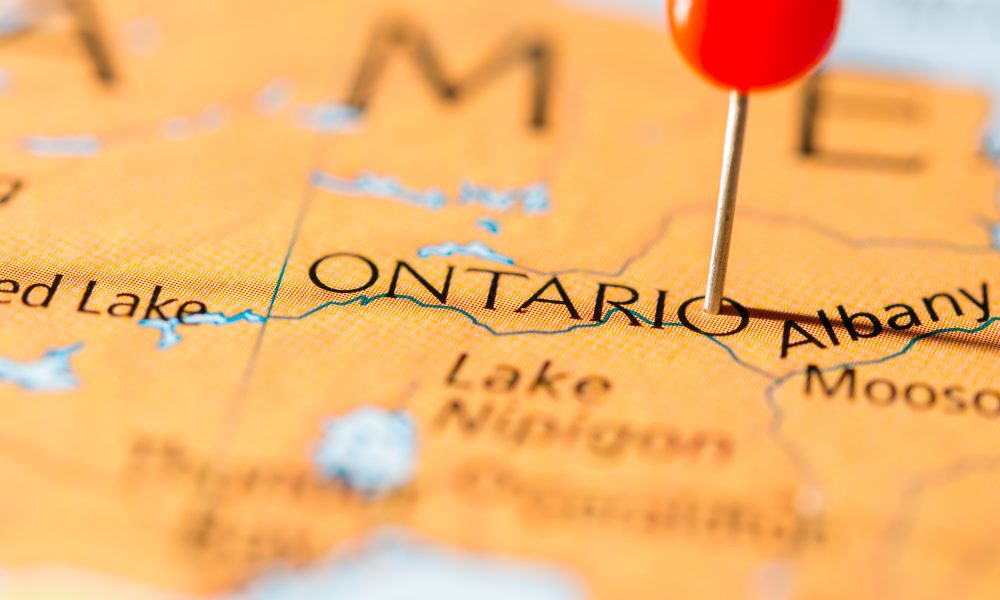One salient point that came out of a recent chat with Mississaugas of Scugog Island First Nation (MSIFN) chief Kelly LaRocca about the future of Great Blue Heron Resort, located north of Toronto was the ongoing impact igaming is having on land-based casinos, which she deems as a big negative for her community.
MSIFN owns the Great Blue Heron, which opened in 1997. The Ontario Lottery and Gaming Corporation manages it and Great Canadian Entertainment operates it.
What she called the “cannibalization” of land-based casino operations by igaming is at the forefront of her concerns today, as well as those of the First Nations community, she said.
“We’re interested in discussing igaming and the impact on gaming in our community, in our facility, and on other land-based facilities,” LaRocca said. “[If I were a land-based operator], I would be mighty upset about the onset of igaming, especially after having poured hundreds of millions of dollars into various land-based gaming facilities, only to turn around and have their market share scuttled.”
At the recent Canadian Gaming Summit in Toronto, Ray Pineault, chief executive officer of Mohegan Gaming & Entertainment, Ilkim Hincer, executive vice president and chief legal officer of Hard Rock International, and Tim Richards, executive vice president of digital strategy at Everi, came together to discuss that very point – even more timely as the largest casino in Canada, the new $1 billion Great Canadian Casino Resort Toronto, was opening its doors.
LaRocca concerns aren’t only about the impact of igaming on Great Blue Heron, but also what she sees as a lack of focus on the quality of that casino, combined with the opening of new casinos in close proximity, with the ensuing whittling down of their market share.
Omnichannel is an industry phrase that’s been tossed about. It refers to an organization’s horizontal success to get a feel for the players, AML (anti-money laundering), KYC (know your customer), ID verification, plus regulatory, competitive, and operational constraints. How many different ways and means can you engage with your guests?
“You want to be ubiquitous, you want to be everywhere,” Hincer said. “You want to leverage your offerings and you want your customers to have as frictionless an experience as possible across your entire enterprise.”
Ontario has had a robust land-based industry for years, with the gray-market igaming industry now being successfully converted over to a regulated market.
“The land-based operators have spent a lot of time, money, and energy creating jobs and making sure those [land-based] properties are successful,” he said.
What are the challenges in marrying the two worlds?
Pineault cited “regulatory challenges with KYC and responsible gambling and different jurisdictions.” He added, One of the things we worry about everywhere is the brand. We have different divisions – digital, advertising, and brick-and-mortar. They need to work together. We need to deliver a consistent experience to our guests across all the channels. You can’t have one division offering an experience that’s not as good as the other divisions.”
Hard Rock is in 70 countries with 260 Hard Rock-branded facilities: hotels, casinos, hotel-casinos, restaurants, and the digital space.
“How do we technologically make convenience seamless for our patrons? How you engage with them in a consistent and seamless way is critical,” Hincer said. “The unifying factor is the brand.”
How do you leverage the loyalty people have to the brand in the restaurants, casinos, and online space?
“It’s very difficult and complicated, but that’s what you have to do,” he said.
You don’t want to lose that loyalty as you go into new channels like igaming. The goal is to gain a bigger share of the guest’s wallet through that loyalty.
In Ontario, the new model has prompted some existing operators to partner with incoming organizations online operators, for example. Thus, the brand might not be the unifying dynamic. The reality in the province is it’s more challenging to unify the verticals and control the brand.
As an example, FanDuel has a sportsbook in Connecticut and is Mohegan’s partner there, but they also have the Mohegan sportsbook in that state. “Our brand, our sportsbook,” Pineault said.
Partners need to be receptive to protecting the brand, he added.
Mining the database of patrons in Ontario is challenging for the land-based operators, unlike in other markets, since the Ontario Lottery and Gaming Corporation owns the database. Unlike in other markets, operators like Mohegan have to work with OLG to access it. They’re more restricted to signage and marketing on the actual site to target existing guests.
“We have huge databases and first-mover advantages in other markets,” Pineault said.
One of the advantages brick-and-mortar operators like Mohegan and Hard Rock has is their ability to bring people to the venues through offerings like concerts and other entertainment. One of the successful promotions Mohegan’s digital gaming was able to capitalize on in Connecticut was Bruce Springsteen tickets.
“The FanDuels, the DraftKings can’t offer that. They don’t have the bricks and mortar,” Pineault said. “That’s a big advantage we have.”
Hincer referenced massive F1-related promotions and events Hard Rock is leveraging. The Ottawa Senators have been a partner of Hard Rock in Ottawa.
Added Pineault, “There’s no doubt we want crossover. We want people from our bricks and mortar to engage in our digital gaming and people in our digital gaming to engage in our bricks and mortar.”





